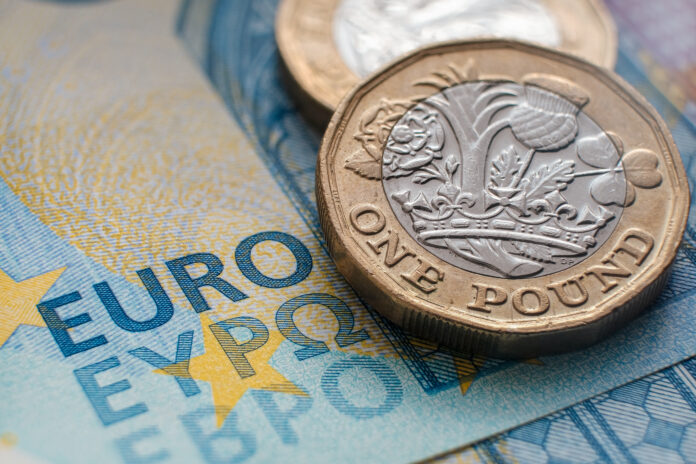
The pound had a tough year in 2022, but will 2023 be any different?
When we break down the different factors that matter for the pound it becomes clear that the path of least resistance over the coming months might just be higher.
The pound fell 5% against the euro in 2023 as a number of things went against it.
The list includes the widespread fall of stock markets which typically coincides with a fall for the pound against the euro.
The main reasons for the decline in stocks was a combination of the war in Ukraine and rocketing inflation, two factors that are still with us at the start of the new year.
Other reasons for the pound’s decline in 2022 were domestic woes surrounding the removal of Boris Johnson as Prime Minister and his replacement Liz Truss who tried to deliver tax cuts and spending increases that analysts said would jeopardise the country’s finances.
The pound to euro exchange rate actually fell to its lowest point of the year at 1.0843 in the wake of the Truss mini budget as investors began to panic about the outlook.
The Bank of England meanwhile issued dire economic warnings that turned investors away from the UK as they feared its premonitions of an impending and long-lasting recession would bode poorly for the majority of UK-based investment assets.
When predicting how 2023 will go, the above factors must be considered, and on balance, it is not looking too bad for Britain’s unit of exchange.
As mentioned, the war in Ukraine continues to loom as a large question mark on the future, but inflation finally appears to be falling.
If inflation can continue to fall then the world’s central banks can quit raising interest rates, which is deemed good for stocks and global growth and is therefore also good for the pound.
A nasty surprise would however occur if inflation started creeping higher again.
The Bank of England is meanwhile likely to stop raising interest rates. This might be bad for the pound in the short run but when considered over 2023 as a whole it could actually be supportive.
Looking ahead to the coming month, the key focus for GBP investors is likely to be the BoE’s latest interest rate decision.
“It’s widely assumed the BoE will pursue another 50bps rate hike in February, but its outlook for future hikes is less clear. If the split within the bank’s monetary policy committee grows wider the pound could plummet,” says Philip McHugh who covers currency markets for Currencies Direct.
After all, steady interest rates are good for economic growth and the pound is a currency that tracks UK growth expectations higher.
The new Prime Minister Rishi Sunak has meanwhile imposed order on financial markets with his relatively austere approach to public finances. This might not be the best for the growth outlook but markets reward stability.
Politics could therefore fall off the radar over the coming months, and this would boost the pound.
All in all, there are some positive developments that suggest the pound is poised for a potential gain against the euro in 2023.
None least of which is the observation that the pound to euro exchange rate does not like to sit below the 1.11 watermark. In fact, it has only ever closed below this point on an annual basis once.
The upside is therefore more accessible than the downside from current levels.
“We get a sense that we are close to peak pessimism in the UK,” says Derek Halpenny, who is an economist at the investment bank MUFG. “Better conditions globally (subsiding inflation) and domestically (recession-end to approach later in the year) should allow for a period of GBP outperformance.”








